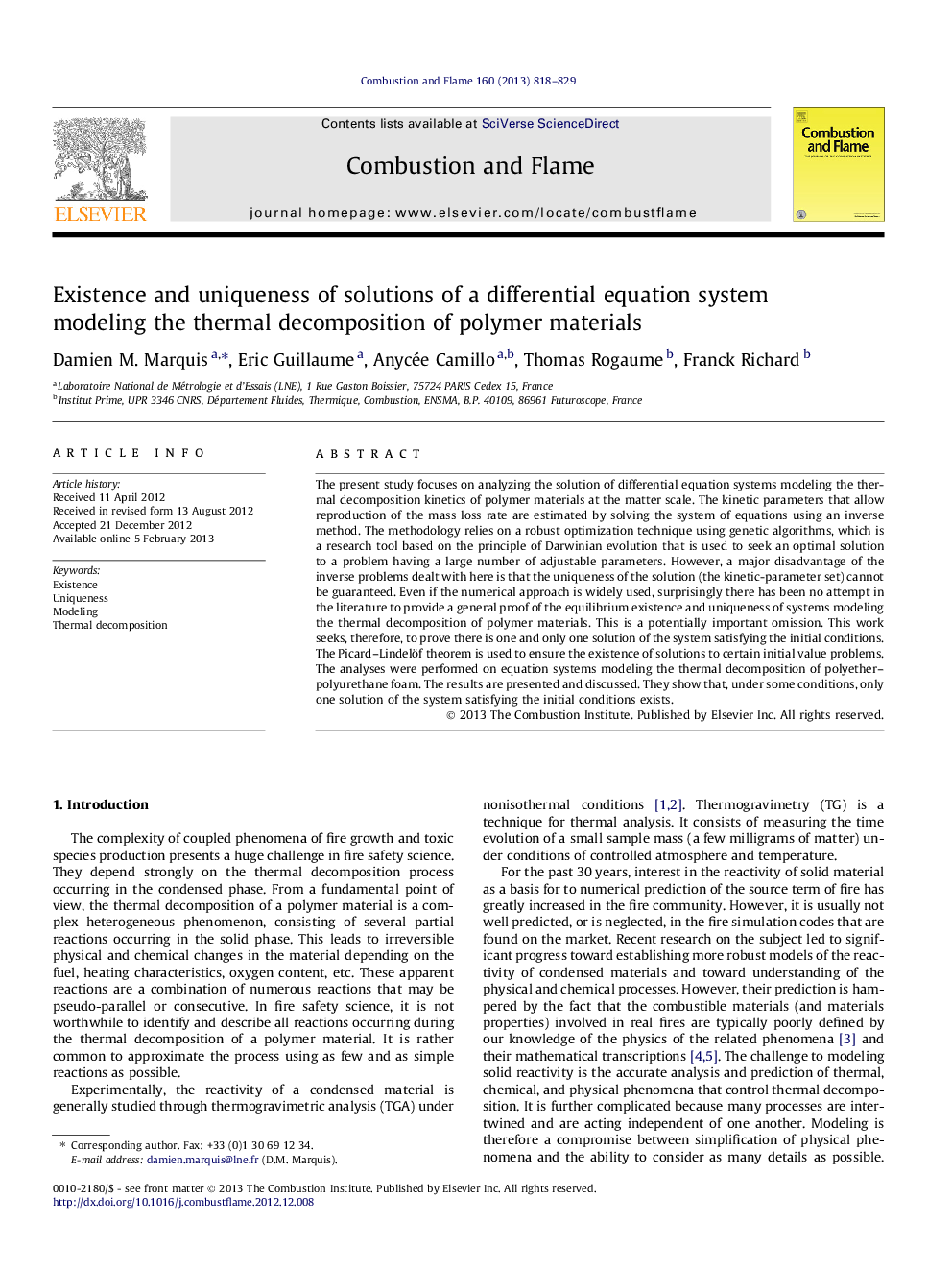| Article ID | Journal | Published Year | Pages | File Type |
|---|---|---|---|---|
| 168953 | Combustion and Flame | 2013 | 12 Pages |
The present study focuses on analyzing the solution of differential equation systems modeling the thermal decomposition kinetics of polymer materials at the matter scale. The kinetic parameters that allow reproduction of the mass loss rate are estimated by solving the system of equations using an inverse method. The methodology relies on a robust optimization technique using genetic algorithms, which is a research tool based on the principle of Darwinian evolution that is used to seek an optimal solution to a problem having a large number of adjustable parameters. However, a major disadvantage of the inverse problems dealt with here is that the uniqueness of the solution (the kinetic-parameter set) cannot be guaranteed. Even if the numerical approach is widely used, surprisingly there has been no attempt in the literature to provide a general proof of the equilibrium existence and uniqueness of systems modeling the thermal decomposition of polymer materials. This is a potentially important omission. This work seeks, therefore, to prove there is one and only one solution of the system satisfying the initial conditions. The Picard–Lindelöf theorem is used to ensure the existence of solutions to certain initial value problems. The analyses were performed on equation systems modeling the thermal decomposition of polyether–polyurethane foam. The results are presented and discussed. They show that, under some conditions, only one solution of the system satisfying the initial conditions exists.
